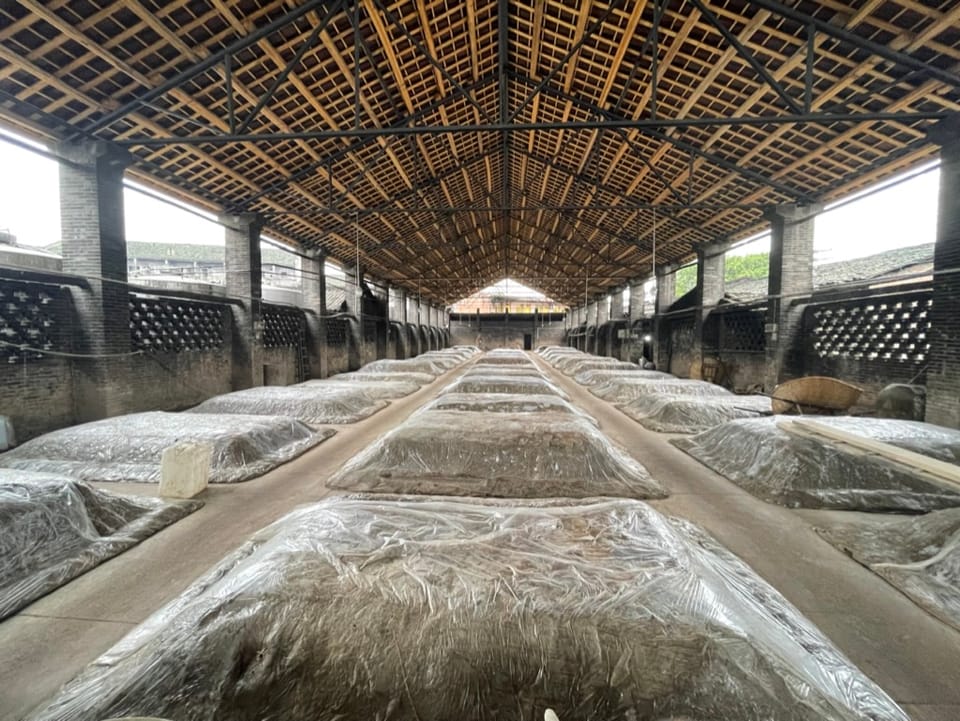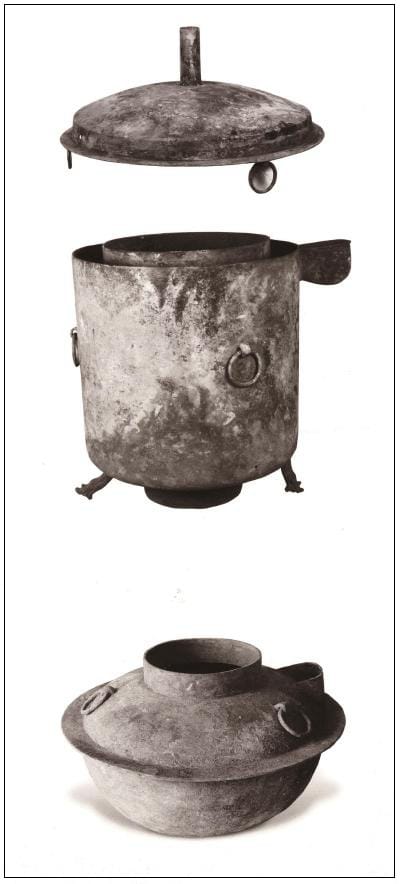Baijiu | The Baichiew History

Baijiu is a type of distilled spirit made in China with a long history, so to investigate the history of Baijiu, one must explore 3 main aspects: the origins of primitive fermented liquor in China and the introduction of distillation techniques to the country, and also the agraian culture in China.

- Fermented Drinks in China
The earliest fermented alcohol in China dates back to ancient times, with evidence suggesting its origins in natural fermentation processes involving grains and fruits. Ancient Chinese civilization had a deep connection with the production of alcoholic beverages, and various methods were employed to ferment grains and fruits into alcoholic drinks.
1.1 Ancient Chinese Fermented Alcohol In ancient China, fermented alcohol was made using moldy grains to produce koji, a fermentation starter. Enzymes contained within the koji would then catalyze the conversion of starch in the raw materials into sugars, which would subsequently undergo fermentation to produce alcohol. This process involved the growth of numerous microorganisms, primarily molds, along with enzymes secreted by these microorganisms.
1.2 Historical Context The history of brewing in China is closely linked to the fermentation of grains and fruits, a tradition that can be traced back to the Neolithic era, specifically to the Chaohu region around 8000 years ago. This suggests that the practice of fermenting grains and fruits to produce alcoholic beverages has deep roots in Chinese history.
1.3 Natural Fermentation The earliest forms of alcohol were likely naturally fermented, including both fruit wines and grain-based beverages. Ancient texts, such as those found on oracle bones from the Yin ruins, contain references to alcoholic beverages, indicating their presence in early Chinese society.
1.4 Evolution of Brewing Before the advent of synthetic methods, alcohol production relied on natural fermentation processes involving sugars or starches under the influence of microorganisms. This natural fermentation process was significant in the development of early Chinese alcoholic beverages.
1.5 Documentation Chinese historical records trace the origin of alcohol back to ancient times, with references to natural fruit wines. Sugars undergoing fermentation with the action of yeast were key to the production of these early alcoholic beverages.
1.6 Varieties of Alcohol Prior to the Yuan Dynasty, Chinese alcohol was primarily fermented, with alcohol content typically not exceeding twenty degrees. Rice wines, with a sweet and sour taste and often cloudy appearance, were prevalent, with popularity continuing into the Song Dynasty.
Insights The development of fermented alcohol in ancient China reflects the ingenuity and resourcefulness of early civilizations in utilizing natural processes to create culturally significant beverages. The practice of fermenting grains and fruits to produce alcoholic drinks has deep historical roots in Chinese society and has played a crucial role in social, cultural, and even religious contexts throughout its history. Additionally, the evolution of brewing techniques over millennia demonstrates the continuous innovation and adaptation within Chinese culture.

- Distillation and Baichiew: 8000 Years? or 800 years?
Based on the search results, there are different opinions regarding the timing of the introduction of distillation technology to China. Some sources suggest that distillation technology was introduced during the Yuan Dynasty, facilitated by the conquests of the Eurasian region, with distillation equipment brought into China during this period. However, it wasn't until the Qing Dynasty that distillation technology began to be promoted and disseminated widely.
On the other hand, there are scholars who argue that distillation technology existed in China as early as the Jin Dynasty, suggesting it might have been a locally originated technique. Additionally, there are debates about whether distillation technology was present even earlier, possibly during the Shang and Zhou Dynasties, with some scholars proposing that it was a Chinese innovation using crops like glutinous rice and sorghum as primary materials.
The discourse around the origins of distillation technology in China seems to be ongoing and lacks a definitive conclusion. Some argue for an external origin during the Yuan Dynasty, while others propose indigenous development dating back to earlier dynasties. The lack of consensus suggests that more research and archaeological evidence might be needed to establish a clearer understanding of the timeline and origins of distillation technology in China.
In conclusion, while there are various opinions regarding the timing and origin of distillation technology in China, it is evident that it has been a subject of scholarly debate with no definitive answer yet. Further research and exploration into historical records and archaeological findings may provide more clarity on this topic. Finally the research shows that Baichiew/Baijiu, as a distilled spirit, is roughly either as old as 8000 years, and no younger than 700 years since Yuan Dynasty.

- Alcohol and Agrarian Civilization
The relationship between alcohol and agrarian civilization is deeply intertwined throughout human history. Across various cultures, the development of alcoholic beverages has been closely linked to the advancement of agrarian societies. Here's a breakdown of the information gleaned from the provided web search results
3.1 Historical Context The emergence of alcohol production signifies the maturity of agrarian societies, as it involves the cultivation of grains or fruits followed by a complex process of fermentation and brewing. This indicates that the production of alcohol required a settled lifestyle and sophisticated agricultural practices.
3.2 Cultural Significance Alcohol holds significant cultural importance in both Eastern and Western civilizations. It is often considered to be intertwined with the very concept of civilization itself. The origins of great civilizations often have connections to the production and consumption of alcohol.
3.3 Poetic Inspiration In Chinese culture, the aromas of grains and alcohol are considered poetic elements derived from the earth, reflecting the essence of the 24 solar terms. This suggests a deep cultural appreciation for alcohol's connection to agricultural rhythms.
3.4 Role in Early Society Some scholars suggest that early humans may have initially cultivated grains not primarily for food but for brewing beer. Beer, therefore, played a crucial role in early human societies, serving not only as sustenance but also as part of social and religious rituals.
3.5 Scientific Perspective The most scientifically supported conclusion is that alcohol production originated from agricultural practices. Sufficient availability of raw materials and knowledge of fermentation processes were prerequisites for the development of alcoholic beverages.
3.6 Transition to Grains With the advent of agricultural civilizations, the production of grain-based alcoholic beverages replaced those made from natural fruits. This transition marked the conscious integration of alcohol into societal life, fulfilling human desires for intoxication.
Insights The relationship between alcohol and agrarian civilization underscores the intricate connections between human culture, agriculture, and technological advancement. The emergence of alcoholic beverages not only reflects the progress of agricultural practices but also signifies a shift in societal norms, including the integration of rituals and social interactions centered around alcohol consumption. Moreover, the cultivation of crops specifically for brewing highlights the ingenuity of early human societies in harnessing natural resources for cultural and social purposes. Overall, the history of alcohol production provides valuable insights into the development of human civilization and the profound impact of agricultural advancements on cultural practices.
Conclusion
As an agrarian civilization, Chinese people have mastered the fermentation and distillation techniques long ago. Baichiew/Baijiu as a distilled spirit can date back to 800-8000 years in history.
